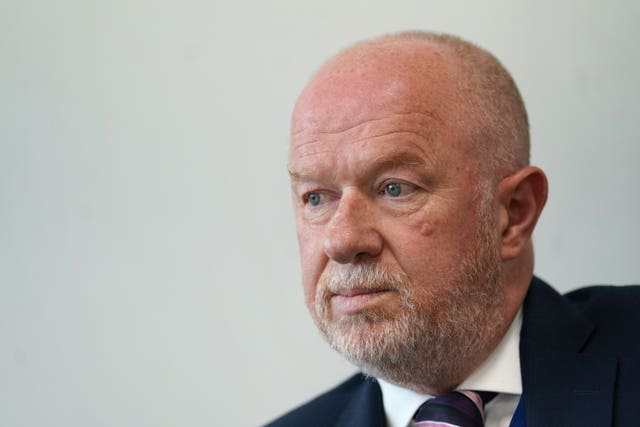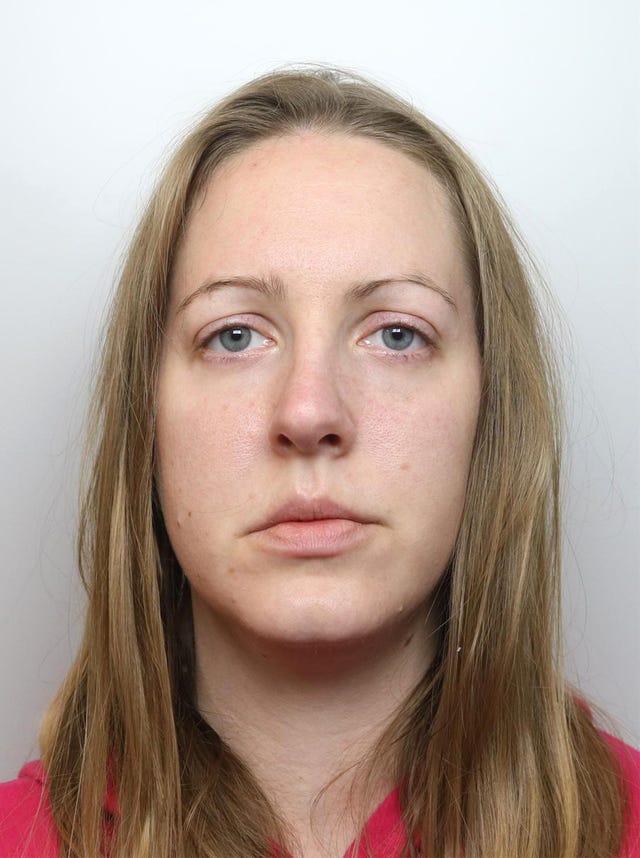Ban on ninja swords but no mention of crossbows in planned weapons crackdown
The previous government considered introducing a licensing system for the weapons after a plot to assassinate the late Queen.

Ninja swords are set to be banned under Government plans set out in the King’s Speech, but there is no proposal to take action on crossbows.
Home Secretary Yvette Cooper said last week she was urgently looking at whether to clamp down on the weapons after a mother and two daughters were murdered in Hertfordshire.
Carol Hunt, the wife of racing commentator John Hunt, and two of their daughters were killed with a crossbow in their family home in Bushey.
The previous government looked at bringing in firearms licensing-style rules in the wake of an attempt to kill the late Queen with a crossbow.
There is currently no registration system for owning one, no requirement for a licence and they appear to be readily available to buy online.
But it is illegal for anyone under 18 to buy or own one, and anyone carrying a crossbow in public without a reasonable excuse faces up to four years behind bars.

Labour said it will also introduce “strict sanctions” on senior executives of online companies who illegally sell knives.
It has made a general pledge to halve serious violence over the next decade.
Other measures outlined in the speech include making assaulting a shop worker a specific criminal offence, and measures to tackle low-level shoplifting.
Figures released in April showed the number of shoplifting offences recorded by police had risen to the highest level in 20 years.
The move to create a separate offence follows a long-running campaign from major retailers and Conservative backbencher Matt Vickers amid rising violence against retail workers.

The Government also plans to tighten laws around spiking – there has been a long-running debate over whether it should be made a specific criminal offence.
There are plans to introduce “respect orders” to target anti-social behaviour which would ban offenders from town centres in a bid to stamp out public drinking and drug use.
It is unclear whether these would work alongside existing notices and orders or mark a return to anti-social behaviour orders (ASBOs), previously used in England, Wales and Northern Ireland and still used in Scotland.
There are plans to bring in new powers to tackle the use of off-road bikes, and to create an anti-social behaviour lead in every local council area, with a duty on the authority to tackle the issue.
Labour has responded to calls by His Majesty’s Chief Inspector of Constabulary and Fire and Rescue Services Andy Cooke for increased powers.

It will also set up new national standards for procurement, shared services and specialist functions to save money.
The speech says the Government will get neighbourhood police and police community support officers (PCSOs) back on the beat in local communities, but does not specify how this will be done.
Labour has previously pledged to recruit 13,000 more PCSOs.
The Government also put forward measures designed to boost support for victims under the Victims, Courts and Public Protection Bill.
Labour was elected “on a promise to deliver a justice system that puts the needs of victims first”, a document detailing Bills announced in the King’s Speech said.
Key proposals revive those set out under the previous government to force criminals to attend sentencing hearings so victims can see them “face the consequences of their actions”, while paedophiles will be banned from having parental responsibilities and face restrictions on changing their names.
Last year campaigners and victims’ families welcomed promises of laws to give judges powers to compel offenders to attend court after a string of killers, including child murderer Lucy Letby, refused as their punishment was handed down.

Earlier plans to see changes to the law so paedophiles convicted of serious sexual offences lose parental rights over their children have been reignited after they never came to pass under the previous government.
Current rules allow some offenders the right to be included when making important decisions about their children’s education, health and travel, with some mothers forced to pay for legal action to prevent paedophile ex-partners from influencing their children’s lives, MPs warned earlier this year.
The plans for the Bill also promise broadly to cut delays to justice amid backlogs of cases waiting to be heard in criminal courts, as well as a general pledge of making sure victims of crime and anti-social behaviour “get the support they deserve”.
Part of this will involve giving the Victims’ Commissioner extra powers so they can “hold the system to account for the needs of victims not being met”.
Alluding to a manifesto pledge on associate prosecutors – who handle uncontested magistrate court cases for the Crown Prosecution Service – the document also hints at plans for the lawyers to be allowed to work on more types of “appropriate” cases.
The Government also promises to “deliver on our manifesto commitment to fast-track rape cases, with specialist courts at every crown court”.





